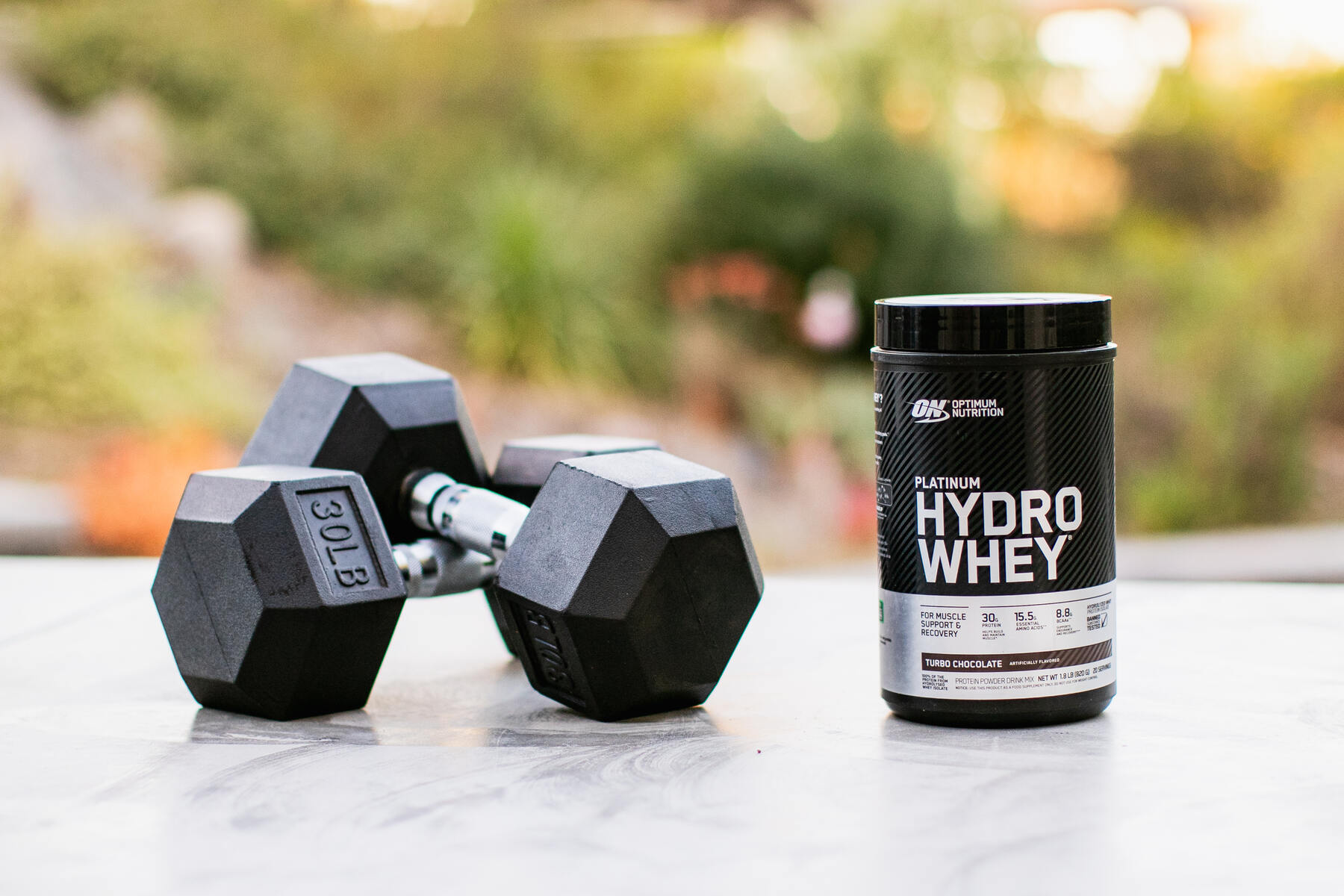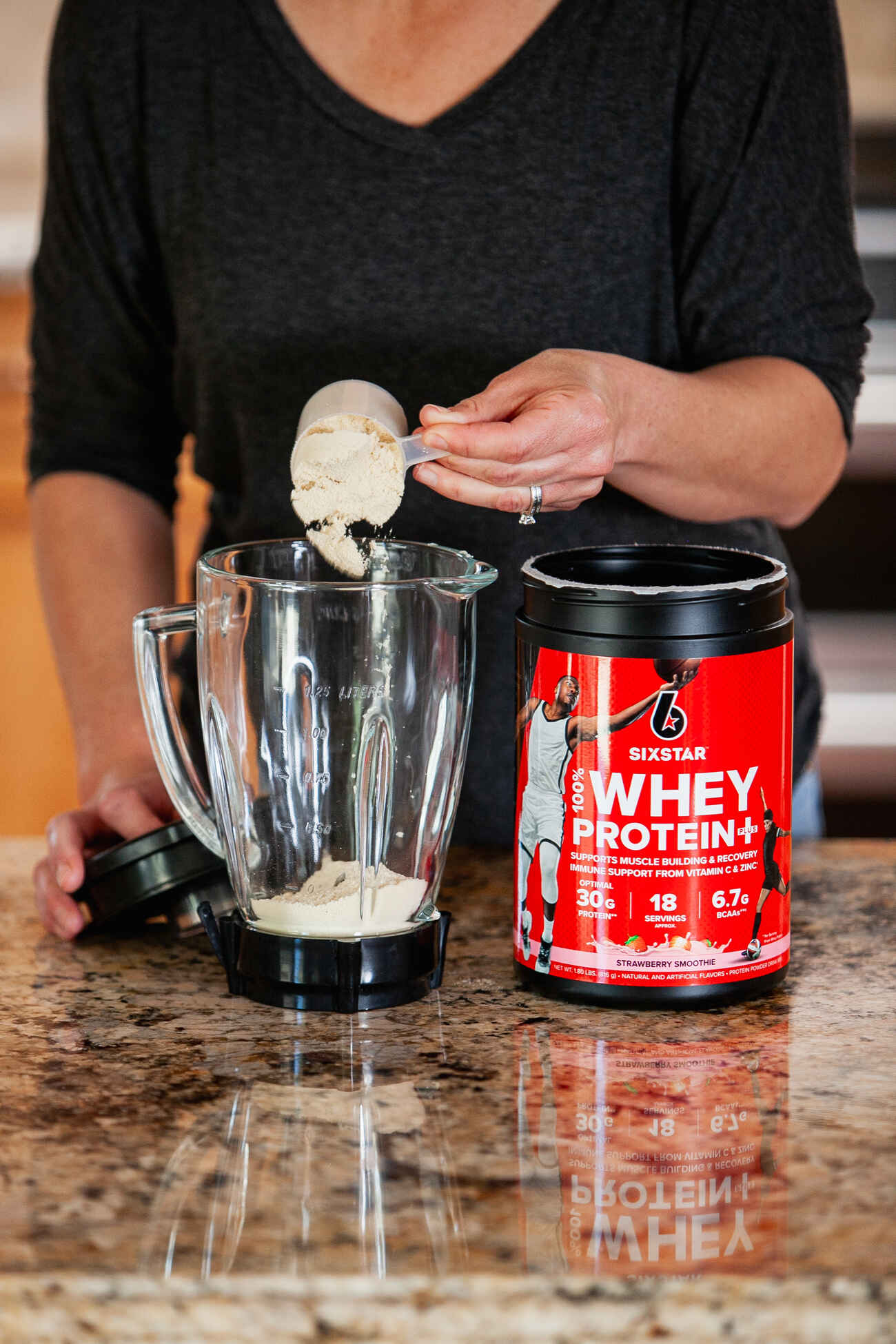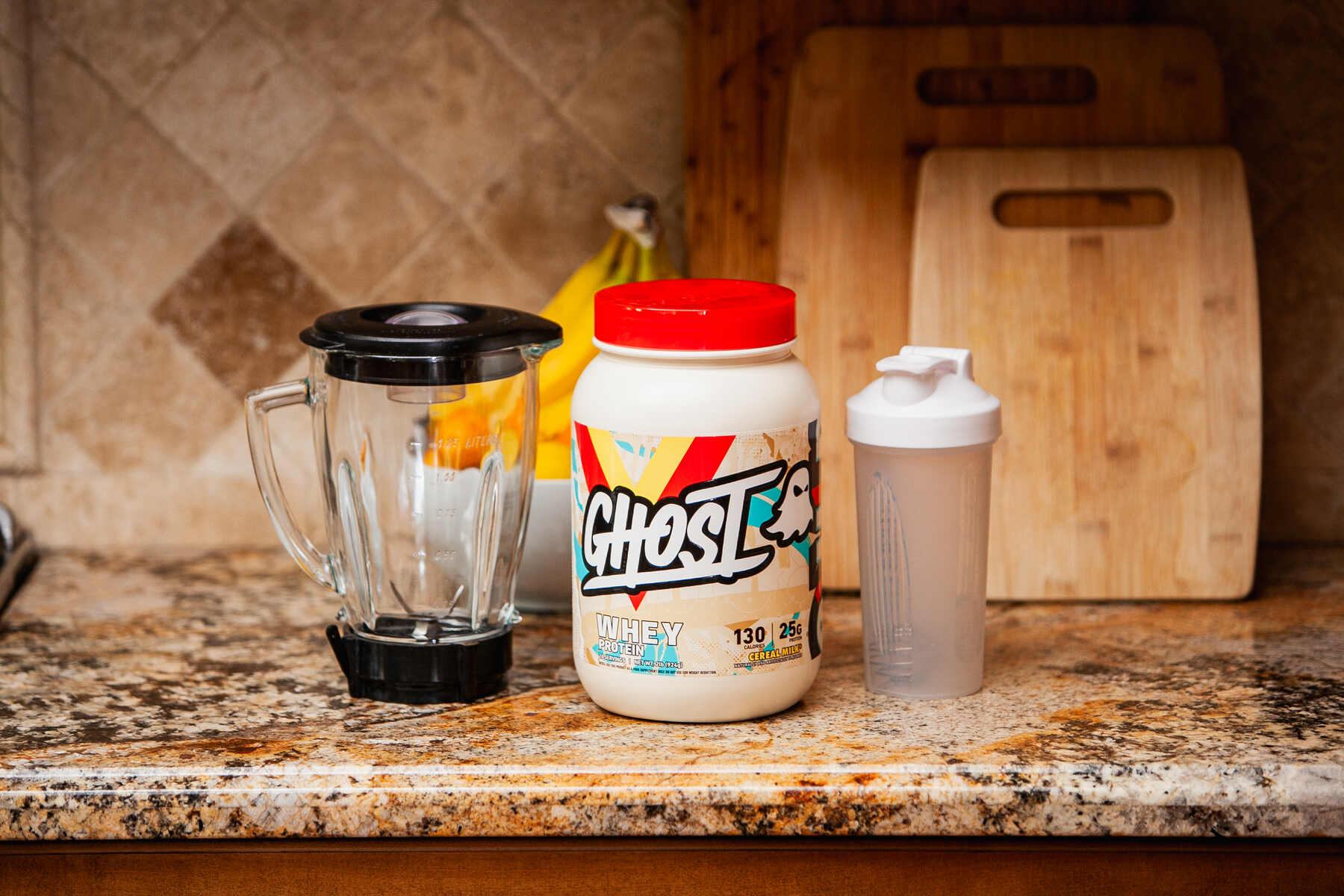Whey protein powder is a versatile supplement that is highly popular in the fitness, strength, and bodybuilding communities. The product is widely used in shakes and baking recipes to conveniently increase daily protein intake. So, if you are sensitive or allergic to dairy products it’s important to understand if whey protein is in fact, dairy free.
Is Whey Protein Powder Dairy Free?
No, whey protein powder is not dairy-free because it is derived from cows’ milk. This means that it contains lactose that can trigger reactions in people allergic to dairy products.
Although whey is made from the lactose-containing liquid part of milk, the amount of lactose in whey varies from one product to the next. Some have larger amounts of lactose, while others only have a small amount.
Therefore, if you are allergic to dairy products or have lactose intolerance, you may need to try an alternative protein supplement product. There are various products in the market that provide the muscle building benefits of whey. For instance, you can try egg white protein powder, which contains zero lactose.

Other products that can be substituted for whey that provide excellent nutritional value include soy protein, eggs or egg powder, hemp seed powder, seitan, and even lentils.
You can also use chia seeds, millet, and even beans and rice for a complete protein source. Some of these alternatives have fiber, calcium, and healthy fats, essential for body growth and the development of lean muscle mass.
Different Types of Whey Protein
The market has three primary types of whey, and each is processed differently. Their nutritional value also varies from one type to the other. It’s amazing how many different opinions you can find on protein, so it is important that you understand which whey suits your tastes and needs. With that in mind, here are the three primary types of whey protein you will find:
Whey Protein Concentrate (WPC)
Whey concentrate is a protein powder that removes most non-protein components from whey. It is a dairy-based protein supplement that contains all 9 essential amino acids. It can be used to make a simple protein shake, or included in various recipes to give you a protein boost no matter what meal you are making.
Ultrafiltration (UF) produces whey concentrate, which removes non-protein nitrogen, minerals, and lactose. This leaves WPC with a higher protein content (approximately 80%) than lactose and minerals (20%).
Whey protein concentrate is relatively easy to digest though some may experience gastrointestinal discomfort if they are dairy sensitive.
Advantages
- Relatively easy to digest with an estimated absorption rate of 10 grams of protein per hour.
- A good protein powder option for those with mild lactose intolerance.
Disadvantages
- WPC may trigger allergies in people allergic to dairy products

Whey Protein Isolate (WPI)
Whey isolate is a protein made by separating whey from lactose, fat, and minerals through ion exchange or microfiltration. It is a fine protein powder with a 90% concentration of protein. This protein concentration is higher than WPC’s, making it a great choice for making shakes or other protein enriched recipes for those who want to reduce lactose from their diet.
The production process of this protein ensures that most of the lactose, fat, and other minerals are eliminated. This makes it an excellent choice for people who are lactose intolerant and at the same time, don’t want to consume more fat.
Whey protein isolate has a lower lactose content level than standard whey protein concentrate, making it easier to digest for those with issues digesting lactose.
Advantages
- It contains all essential amino acids necessary for muscle building and growth
- It contains fewer calories, making it ideal for those cutting calories.
- It contains a higher percentage of protein than standard whey powder concentrate (90%), which is great for people following strength and bodybuilding programs.
Disadvantages
- It still contains a small amount of lactose which may be a problem for people who are lactose intolerant.
- It is generally more expensive compared to other whey powder options.
Whey Protein Hydrolysate (WPH)
This protein source contains what are called “pre-digested proteins”. It is produced through a process called hydrolysis and this process produces a protein powder source that tends to be much easier to digest than standard whey protein.
This process leads to chains of amino acids that are smaller than what standard whey protein provides. And this means quicker absorption of protein by the body. In other forms of whey protein, the chains of amino acids need to be broken down by the body before they can be absorbed. But in whey protein hydrolysate, those amino acids come in di and tripeptide form, which do not require further processing by the body.
Hydrolysate whey protein is an excellent option for those looking for easy to digest protein that is easier on the digestive system.
Advantages
- The body can absorb it quickly, making it ideal for athletes and those recovering from a hard gym session.
- WPH helps in the growth and repair of muscle due to containing all essential amino acids
- It can help muscles recover after a prolonged exercise due to its high absorption rate
- Whey hydrolysate is typically lower in lactose than others, making it a good option for lactose-intolerant people
Disadvantages
- Higher cost than many other types of whey protein.

Benefits of Whey Powder
Whey protein comes with many benefits that users and non-users should understand. Here are some of the benefits:
- The protein in whey is essential in strengthening muscles and bones
- Whey protein contains all 9 essential amino acids
- Whey is rich in glutathione which enhances the antioxidant defense system
- Whey contains cytokinins which are known to regulate systolic blood pressure
- Whey can aid in weight loss by reducing appetite and hunger. It does this by increasing satiety hormones and preserving muscle mass when fasting
Frequently Asked Questions
What Is Non-dairy Whey Protein?
This is a milk protein without lactose, such as Whey Isolate. It is made by separating whey from milk and then removing the lactose. This type of protein is ideal for people who are lactose intolerant. However, you should be aware of products “lactose-free” as some may still contain lactose. Always buy your supplements from a trusted dealer and be aware that no whey protein source is guaranteed to be lactose-free.
Does Whey Protein Have Gluten?
Whey is gluten-free, making it an excellent choice for people with celiac disease. All three types of whey (isolate, hydrolysate, and concentrate) contain nutritional values that can help build body muscles and boost the immune system.
When Should You Take Whey?
There is a lot of debate about timing your protein intake. And while with highly trained individuals, timing may provide some benefit, for most people it is most important to consume enough protein per day and avoid focusing on timing.
With that said, some general guidelines to follow with protein timing are to consume protein following your workout, before bed, and even around a half hour before working out.
Conclusion
Whey is a great supplement that most people use to boost the immune system, provide energy, and strengthen muscles and bones. However, if you are allergic to dairy products, consider using other protein-rich ingredients, such as almond seeds, gram flour, or egg white protein.